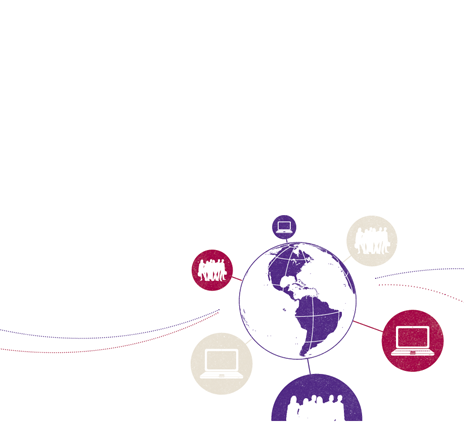-
Deals Services
The financial advisors of Grant Thornton offer customized solutions to their clients through personalized methods and services.
-
Technology
Our goal is to redefine how clients do business. With expertise in digital strategy, AI, data insights, and automation, we create personalized solutions to…
-
Strategy and Investments
The Strategy and Investments department supports businesses at strategic, operational and financial level.
-
Environmental, Social, Governance, Risk & Compliance
In the current business and regulatory environment, businesses aspire to meet today's requirements effectively, and to create value on sustainable terms.

-
Audit Services
The dedicated staff of Grant Thornton provide you with audit services such as financial statements for your business by using the HORIZON methodology.
-
Business Growth Advisory
At Grant Thornton, we recognize the need to align financial data with regulatory change, as well as the requirement for accurate financial data and consulting…

-
Corporate Taxation
Grant Thornton's tax professionals offer Corporate Taxation Services to provide advice and solutions to any issues your business may have.
-
Corporate tax compliance
The Grant Thornton corporate tax compliance specilaists possess long experience in both multinationals and Greek companies in all business sectors.
-
International tax services
Grant Thornton supports all businesses operating at the European and international level with advice on international tax matters.
-
Transfer pricing
Grant Thornton offers comprehensive pricing policy planning and tax audit support for domestic, multinational and corporate tax executives.
-
Tax Controversy
Grant Thornton provides tax audit and risk services because tax disputes are unavoidable in numerous businesses.
-
Private Client Services
In case you are an individual, Grant Thornton provides services like tax returns, transfer of wealth to future generations and expatriate taxation services
-
Indirect taxes
Learn more from Grant Thornton about our services for indirect taxes such as real estate taxes, customs, VAT and stamp duties.
-
Tax restructuring
Grant Thornton provides tax advisory services to companies undergoing tax restructuring or a change in their strategic direction.
-
Diagnostic Tax Review
Diagnostic tax review is a tax service offered by Grant Thornton to assist your organisation in identifying and assessing potential tax exposures.
-
Tax efficient supply chain planning
Get informed about tax efficient supply chain planning and how to improve your company's productivity model by reorganizing your productivity activities.
-
Global mobility strategy
In a globalized world, businesses must work seamlessly across borders. Organizations operate in multiple countries and view international expansion as a…

-
Accounting & Tax Compliance Services
Transferring non-core, yet important, activities outside the company and assigning them to specialists - external partners (Business Process Outsourcing) is the best…
-
HR & Payroll services
Grant Thornton provides specialized services in payroll management and human resources management for any type of company.

-
Banking
Grant Thornton has a dedicated financial services team that provides banking services such as tax and…
-
Insurance
Here you will find all the financial assurance services that Grant Thornton can offer to your…
-
Asset management
In Grant Thornton, asset management is a business approach that concerns assurance and…
-
Central Government
Grant Thornton provides services to central government agencies to respond immediately and…
-
Public Corporations and Organizations
Grant Thornton supports Public Enterprises and Organizations to evaluate their operations and…
-
Local Government
Grant Thornton and its qualified employees offers audit and consulting services to support local…
-
NSRF Managing Authorities and Special Services
Grant Thornton's specialized team of executives provides Technical Assistance services for the…
-
Public Health Services
Grant Thornton includes experienced professionals whose aim is to provide integrated services at all levels of…
-
Social Security Services
The public sector division of Grant Thornton provides high quality audit and advisory support services to…
-
Banking
Banking & Securities
-
Insurance
Insurance
-
Asset management
Asset management
-
Central Government
Grant Thornton provides services to central government agencies to respond immediately and…
-
Public Corporations and Organizations
Grant Thornton supports Public Enterprises and Organizations to evaluate their operations and…
-
Local Government
Grant Thornton and its qualified employees offers audit and consulting services to support local…
-
NSRF Managing Authorities and Special Services
NSRF Managing Authorities and Special Services
-
Public Health Services
Grant Thornton includes experienced professionals whose aim is to provide integrated services at all levels of…
-
Social Security Services
The public sector division of Grant Thornton provides high quality audit and advisory support services to…
-
Hotels & tourism services
Hotels & tourism services
-
Transportation
Transportation
-
Information Technology
Information Technology
-
Media
Media
-
Telecommunications
Telecommunications
 Disruption is a wonderful thing – unless you’re on the wrong end of it. Controversial web commentator Andrew Keen outlines where radical technology is a threat to mid-sized businesses.
Disruption is a wonderful thing – unless you’re on the wrong end of it. Controversial web commentator Andrew Keen outlines where radical technology is a threat to mid-sized businesses.
I recently interviewed Hans Vestberg, the CEO of Swedish telecommunications giant Ericsson, who told me that every morning he imagined how he could reinvent his company. Every CEO, particularly of mid-sized companies, should take Vestberg’s wisdom to heart. Digital technology has unleashed a perpetual hurricane of creative economic destruction. Software is not only eating the world, but also many mid-sized businesses. Only the paranoid will survive, and here is why.
1. Timescales have changed
The long term used to be a nebulous dot on the horizon – like the Brazilian economy – that was perpetually about to change everything. But today, time has been so speeded up by technology that whatever once appeared long-term is happening now.
Take, for example, the robot economy – once the preserve of science-fiction writers. Today, however, what is now known as artificial intelligence or machine learning is about to change every industry – from education to healthcare to transportation.
2. The future is here and it’s not evenly distributed
This is a quote from the cyber-punk writer William Gibson, and he was right. From Google’s self-driving cars to Amazon’s drones to the Apple Watch, we are now all living in the perpetual future. And with Moore’s Law showing no sign of ending, more and more seemingly impossible technologies are about to not only be plausible, but inevitable.
These technologies will radically transform entire industries, making some redundant and creating new verticals, new scarcities and new business opportunities.
3. Every company is a technology company
There is no escaping the consequences of technology’s rapid evolution for any business. ‘Ah, but my company isn’t a technology company,’ some CEOs of mid-sized companies will say. ‘We don’t need to worry about technology,’ they will reassure themselves. ‘It doesn’t affect us.’ Wrong.
As Reid Hoffman, the co-founder of LinkedIn and one of Silicon Valley’s most prescient investors has said, every company is now – like it or not – a technology company. From the impact of 3D printing on the traditional manufacturing industry to the impact of wearable technology on the fashion business and self-driving cars on the transportation industry, networked technology is radically disrupting every sector of the economy. Medical, education, government, energy and banking are all about to be revolutionised.
4. The Long Tail was an illusion – the winner takes it all
Many of the internet’s most fervent evangelists promised that the digital revolution would democratise business life, creating more small and mid-sized companies that could all thrive in what has become known as the Long Tail economy.
But the Long Tail is, in truth, a long tale. The digital revolution has created a winner-take-all economy of neo-monopolists like Google, Facebook, Apple and Amazon. Digital technology – particularly the distributed technology of the internet – is creating a new aristocracy of digital companies that are attracting the attention of antitrust legislators in Europe and the United States.
5. The biggest threat of all: monopolies
Mid-sized companies should beware. You are the roadkill of the new economy. ‘Average is over,’ the American economist Tyler Cowen thus wrote about a networked economy characterised by a tiny handful of dominant companies. The impact of this winner-take-all economy on smaller businesses is deeply troubling and CEOs of these smaller companies need to be very worried about the viability of their businesses.
Every industry now is threatened by massively financed upstarts seeking to hollow out an economy traditionally dominated by mid-sized companies. Uber, for example, threatens to sweep away tens of thousands of mid-sized taxi companies. Airbnb may well represent the death knell of thousands of mid-sized hotel chains. That’s why, of course, Uber is now valued at around $40 billion and Airbnb at around $20 billion.
The Internet Is Not the Answer by Andrew Keen is published by Atlantic (£16.99).
Words: Andrew Keen. Illustration © Melvin Galapon
More Strategies for growth...
Strategies for growth is our quarterly update for CEOs that explores ways businesses can navigate the current economic climate and unlock growth. Articles in this issue include:
- Meet your hacker – how to predict cyber crime
- Top five digital disruption threats to your business
- Talking to Professor Brian Cox is inspiring business
- What CEOs can learn from new super mayors
- Crowdfunding for working capital and a new product line
We'll also be posting a further selection of articles from Grant Thornton's Strategies for growth magazine in our Insights section, or you can read them in our digital magazine.
Subscribe to future issues
To subscribe to future editions of Grant Thornton UK quarterly newsletter for CEOs, register your details with us atstrategiesforgrowth@uk.gt.com.



